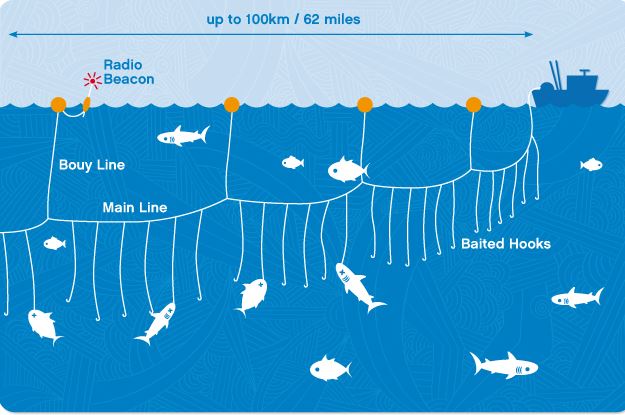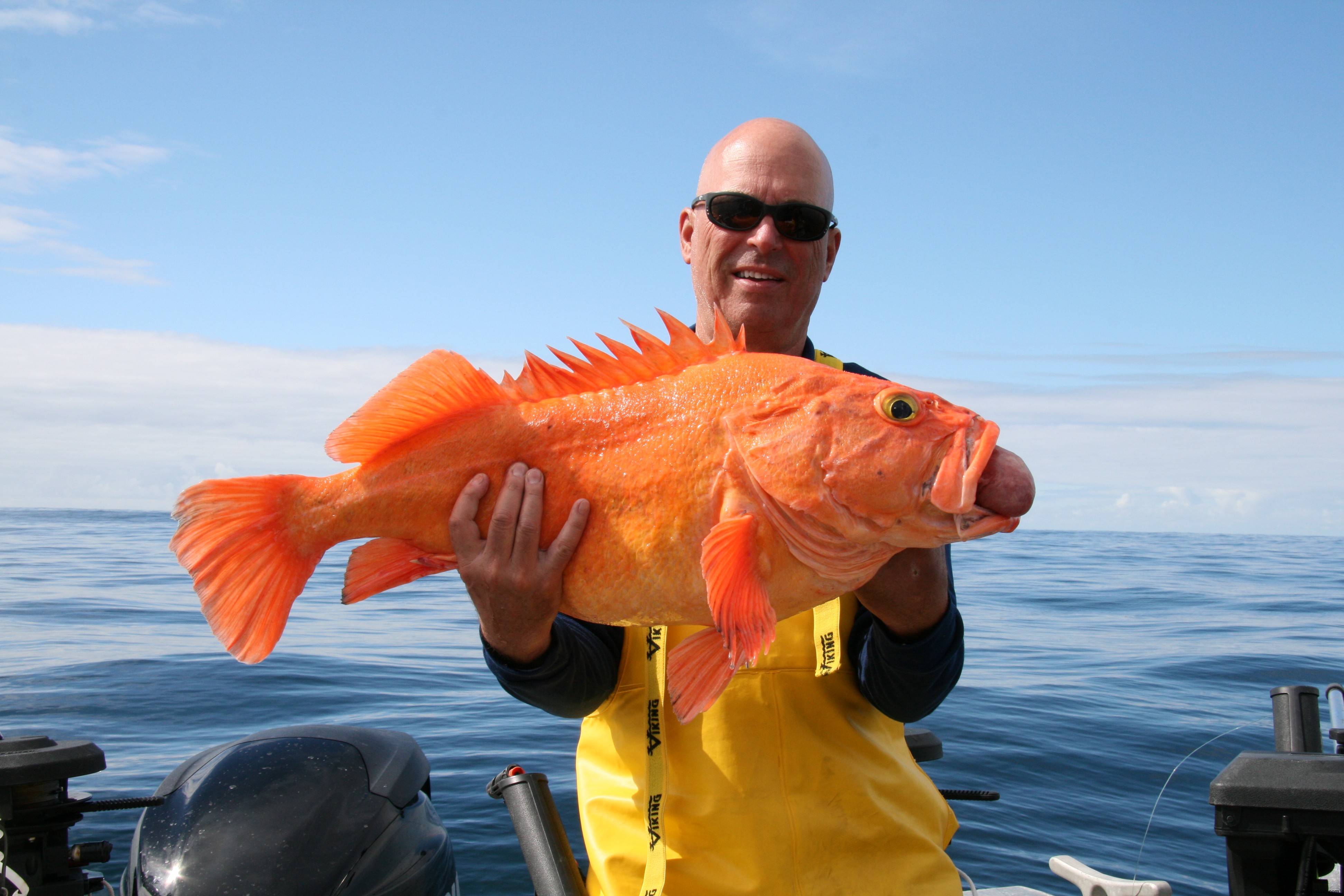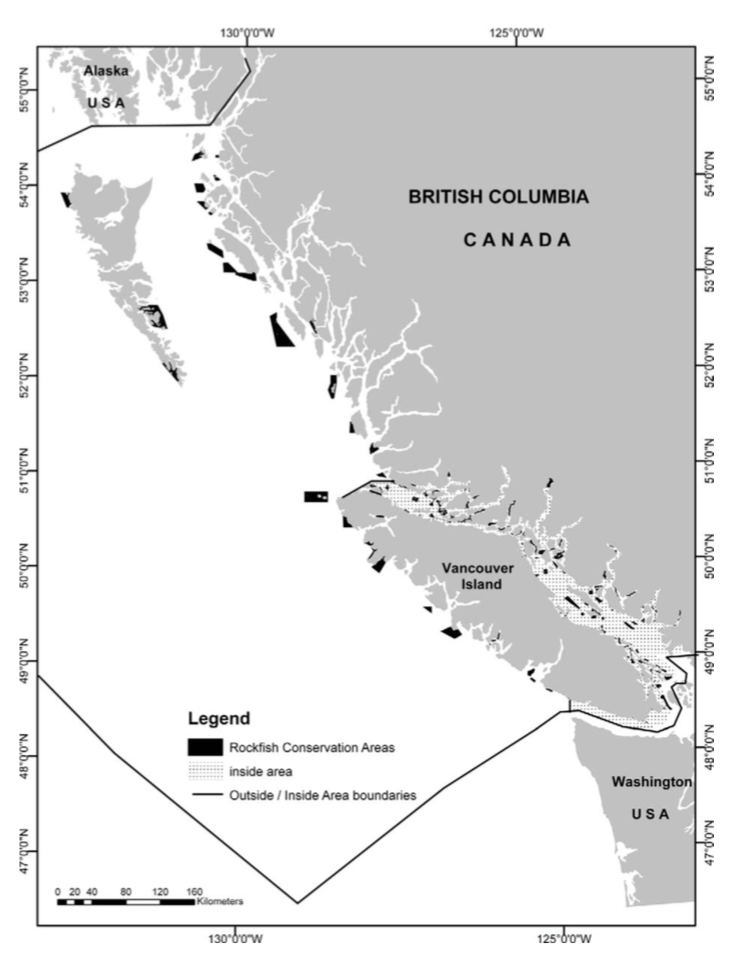Presently, fisheries provide 19% of the global protein and employ 200 million people worldwide. It is a huge economic industry with designated areas in the oceans to catch fish. Since the beginning of commercialized fisheries, where the activity grew from an individual occupation to an immense industry involving catching, transporting, cleaning and selling fish products, the amount of fish in the oceans has steadily declined due to overfishing. Overfishing happens when more fish are caught than can be reproduced and the population is unable to fully recover to its previous numbers. Fish can be more vulnerable to overfishing if they have a longer life span, slower reproduction rate, slower development and are larger in size.
Rockfish, found inshore of Vancouver Island in British Columbia are commonly overfished because they possess all of these characteristics. Large fish are the ideal target for fisheries because it is less catch effort for a higher biomass. The yelloweye rockfish, found in BC grows to be a massive 40 lbs. A rockfish lives for approximately 100 years, making them vulnerable to overfishing because it takes a tremendous amount of time to recover when these older fish are removed from the ecosystem. In contrast to most species who hatch their newborns in eggs, rockfish offspring come out swimming so these young fish are quickly exposed to commercialized fishing. Rockfish are fully developed at age 20, making quick reproduction nearly impossible if overfished. These factors contribute to a slower population recovery time; if rockfish are extensively overfished, it will take generations to rebuild their population to prior numbers.
As result of overfishing the rockfish’s ecosystem, inshore of Vancouver Island will be destabilized. Within every oceanic ecosystem, each species is interconnected within the food chain. If rockfish are endangered it will not only threaten the productivity and interactions within the ecosystem, but also accelerate fishery collapse leading to job loss and economic downfall.
In order to counteract this extinction of rockfish and its lasting effects, a conservation strategy for rockfish has been developed by the Department of Fisheries and Oceans. Decreasing mortality is critical for rebuilding the rockfish population so different systems of fishing are being developed to limit rockfish being caught and released, which ultimately kills them. Furthermore, certain areas will be closed to fishing with the objective of ending the accidental catching of rockfish while ensuring that their habitat will not be compromised.
You can help with rockfish conservation by:
- Reporting any fishing in closed fishing areas to the proper authorities.
- Frequenting restaurants that serve only ocean-friendly seafood.
- Ensuring you avoid over consumption of rockfish which is typically called the Red Snapper or Rock Cod at restaurants and grocery stores.
All of these conservation strategies and individual contributions will give the rockfish time to recover their population here in British Columbia.
-Genevieve Carpenter-Boesch



